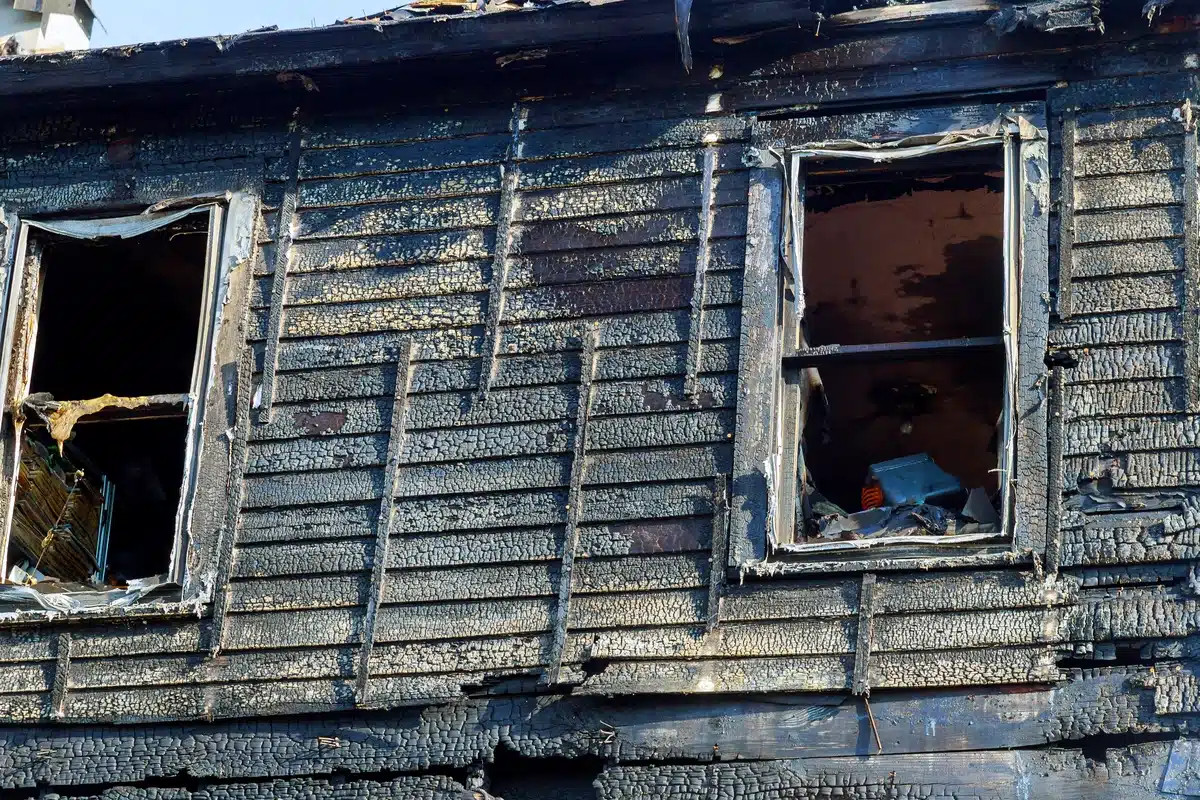
Residential fires cause billions of dollars of damage in the United States each year, according to the National Fire Protection Association (NFPA). Navigating the aftermath of a home fire is never easy.
The most important thing is safety. Once everyone is safe and gets all the necessary medical care, your attention can turn to managing the financial implications of a fire.
It is crucial that you are able to secure temporary housing (if needed) and start the claims process to secure all available financial benefits. At Insurance Claim HQ, we put the rights and interests of homeowners first. Here, our New Orleans fire damage lawyer provides a comprehensive guide for navigating the aftermath of a house fire in Louisiana.
House Fire Aftermath: An Overview of the Steps to Take
Step #1: Make Sure that Everyone is Safe and Secure
Call 911 to report a fire right away. From there, safety is the absolute top priority. A house fire is a terrible tragedy. It can be life-threatening. First and foremost, you should make sure all family members and pets are safe. Check for injuries and seek medical attention if needed. Even if everyone seems fine, consider a medical check-up to address any potential smoke inhalation or delayed shock symptoms. You should also not overlook emotional well-being—contact mental health professionals if anyone is experiencing trauma or anxiety. A catastrophic house fire is one of the most challenging things that a person can deal with.
Step #2: Determine Your Temporary Living Situation (If Needed)
Once everyone is safe and secure and the fire is out, the next step is to focus on figuring out what to do about your temporary living situation. If your home is uninhabitable—which may be the case for a while, even if your home is not a total loss—you will need a place to stay. The best place to start is generally to reach out to friends or family. You may also be able to access resources from local charities and disaster relief organizations like the Red Cross. Of course, for most people, checking into a hotel or temporary housing comes with costs.
Tip: Be sure to keep receipts for all expenses related to lodging and meals. Your insurance policy may reimburse these costs under something called “additional living expenses (ALE)” coverage when it comes time to bring a claim.
Step #3: Carefully Document the Fire Damage to Your Property
Before re-entering your home, wait for clearance from the fire department to ensure it is safe. Once allowed, document all damage as carefully and thoroughly as you possibly can. You can never have too much documentation of the damage. You cannot always know ahead of time what record or what picture will be useful for your insurance claim in the future. Among other things, you should be sure to take clear photos and videos of every affected area and item. You should also create a detailed inventory of damaged belongings—including descriptions of what you lost and its approximate value. Your documentation will be vital for your insurance claim.
Tip: Most homeowners who run into problems in the fire damage claims insurance process do so, at least in part, because they lack comprehensive documentation.
Step #4: Gather All of Your Insurance Coverage Details
What does your fire insurance policy look like? Most people do not have much immediate knowledge of their insurance coverage. That is normal. A house fire is always a risk—but it is also something that you never expect to happen. When you have a moment, locate your homeowner’s insurance policy to understand your coverage. If you cannot find the physical documents, you can contact your insurance agent for digital copies. You should review the policy carefully to know your rights and the insurer’s obligations. Be sure to focus on coverage limits and claim deadlines. If anything is unclear, an experienced New Orleans fire damage claim lawyer can help you prepare your claim.
Step #5: Begin the Clean-Up Process, Often With a Fire Restoration Professional
Cleaning up the mess after a fire can take some time—especially so if it is a bad fire. To the extent your home is still standing, you should prevent any further damage by securing the premises—from boarding up broken windows to covering damaged roofs with tarps to shutting off utilities. A proactive approach is needed to mitigate any additional losses. While it is essential to act quickly, avoid extensive cleanup before the insurance adjuster assesses the damage. Hiring a professional fire restoration company ensures the cleanup is handled safely and efficiently. They can address water damage from firefighting efforts, remove soot and smoke residues, and prevent mold growth.
Tip: If you are preparing to file a fire damage claim, do not conduct permanent repairs before getting approval from the insurance company. If your homeowners’ insurer is dragging its feet, an experienced New Orleans property insurance attorney can help.
Step #6: File for Fire Damage Benefits through Your Insurance Company
You should contact your insurance company as soon as possible to initiate the claims process. In doing so, it is important to provide all necessary documentation—including the fire report from the fire department, your detailed inventory, and receipts for immediate expenses. Be honest and thorough in your communication. At the same time, it is important to understand that you cannot rely on any insurance company to look out for your best interests. You should keep a log of all interactions with the insurer, noting dates, times, and the names of representatives. If you face delays or disputes, you need an attorney.
Claims Tip: You have the right to appeal the denial (or underpayment) of your fire damage benefits.
If you believe that the insurance company wrongfully denied your claim or that it is offering you less than full and fair value for your losses, an experienced fire damage lawyer will help you appeal.
Why Trust Insurance Claim HQ for a Home Fire Claim
A fire damage insurance claim can be especially challenging to navigate—especially if the loss is so severe that you will be required to make a temporary living arrangement. You and your family do not have to take on the complexity of the process alone. Unfortunately, insurance companies can often make things challenging. They must be held accountable for paying valid claims. At Insurance Claim HQ, we provide proactive, solutions-focused advocacy. Our case results show what we can do for policyholders in terms of maximizing their fire damage insurance benefits. Our team always takes a proactive, detail-focused approach.
Schedule Your Free Consultation With Our New Orleans Fire Loss Attorney Today
At Insurance Claim HQ, our New Orleans fire damage loss lawyers are standing by, ready to help you fight for the maximum benefits. If you have any questions or concerns about a fire loss claim, please do not hesitate to contact us today for your free, no-obligation consultation.
